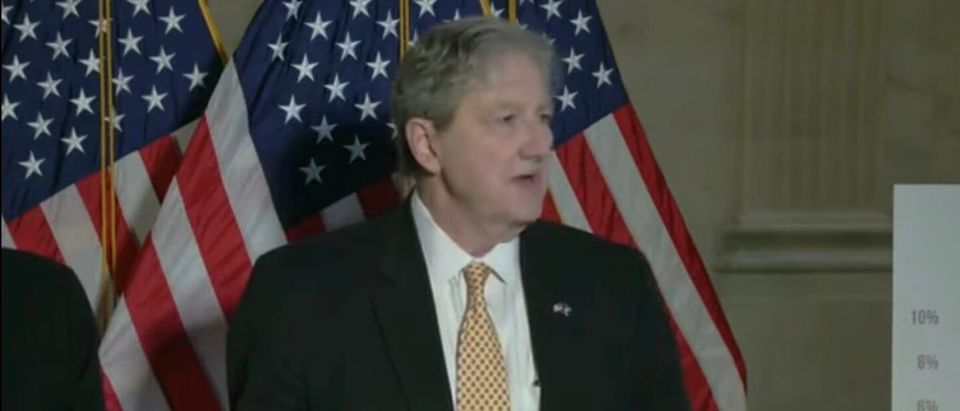Republican Louisiana Sen. John Kennedy said Congress is “worse than drunken sailors” when it comes to spending money at a Senate GOP press briefing that addressed inflation Wednesday.
“If many Americans won the lottery tomorrow, the first thing they would do is fill up their gas tank,” Kennedy began. “I’m not sure that President Biden understands that. The Biden administration claims that they are for the little gal or the little guy but they sure don’t seem to like them very much. I can’t imagine a more pernicious tax than inflation. This inflation which has characteristics of more demand-pull and cost-push inflation is a direct result of President Biden’s economic policies.”
“We can’t force the members of the Biden administration to retake Econ. 101,” Kennedy continued. “But we can do our part by stopping spending like we were drunken sailors. Actually, we’re worse than drunken sailors because drunken sailors stop spending when they run out of money, and Congress doesn’t.”
The senator said that President Joe Biden has linked inflation to COVID-19, unemployment and “greedy” businessmen and women. He added that he expects the president to say at some point that inflation “originated in a bat.” (RELATED: Fed Inflation Experts Are About As Credible As ‘Late-Night Psychic Hotlines,’ GOP Senator Says)
The Consumer Price Index (CPI) rose 0.6% in January, marking a 7.5% increase on a year-to-year growth basis. Food prices rose 7.0% and energy prices by 7.5%.
Consumer prices also soared by 7.5%, a 435% increase from the previous year and largest increase since February, 1982. The average gas price currently stands at about $3.50 per gallon, $1.00 higher than in 2021, according to AAA Gas Prices.
An increase in government spending could possibly lead to demand-pull inflation by simultaneously increasing consumer demand and taxes which could lead businesses to reduce hiring and investments, according to the U.S. Joint Economic Committee. The large amount of spending on programs will risk “reduced economic output, higher interest payments, lower national income, rapid inflation, and even a debt crisis.”


